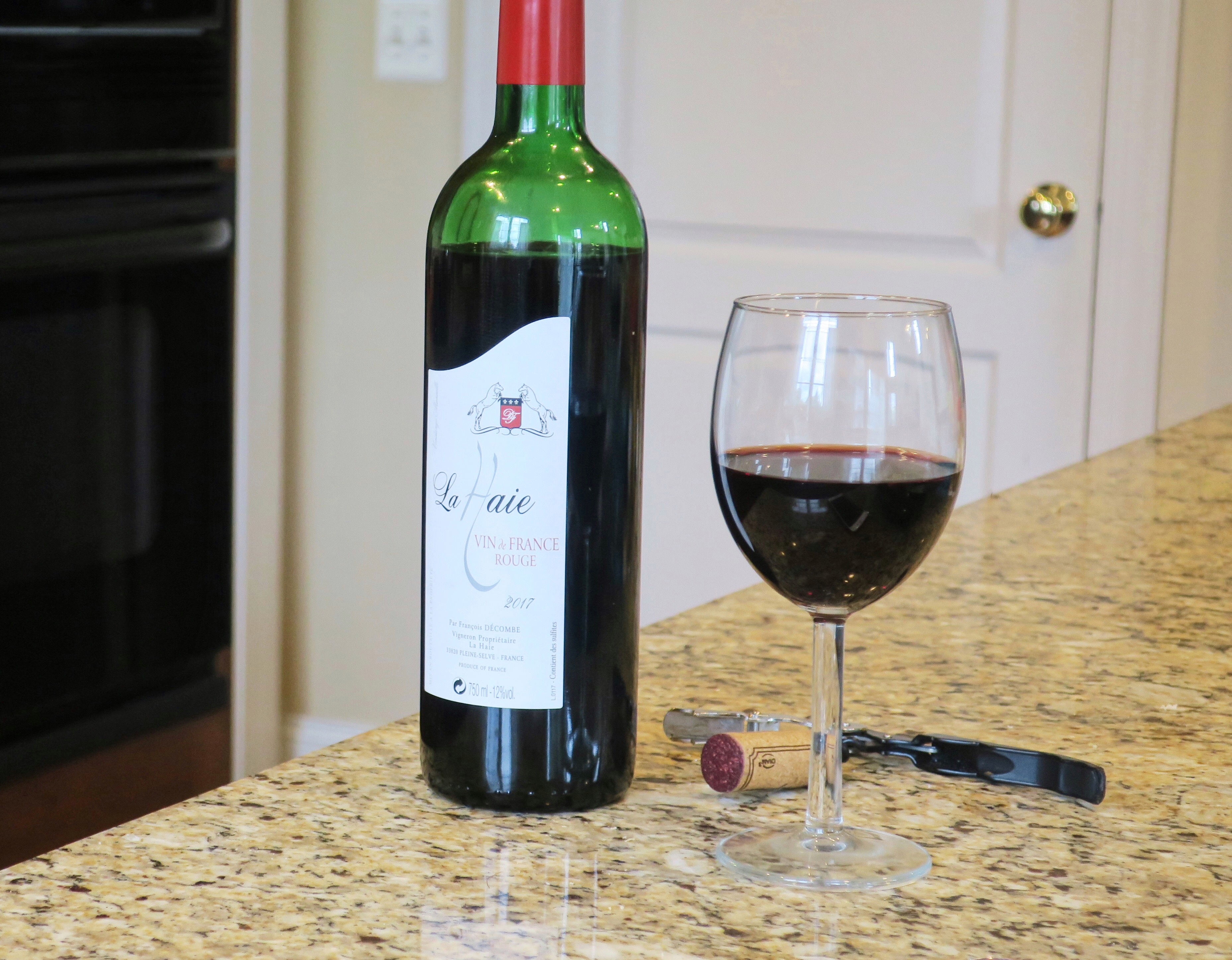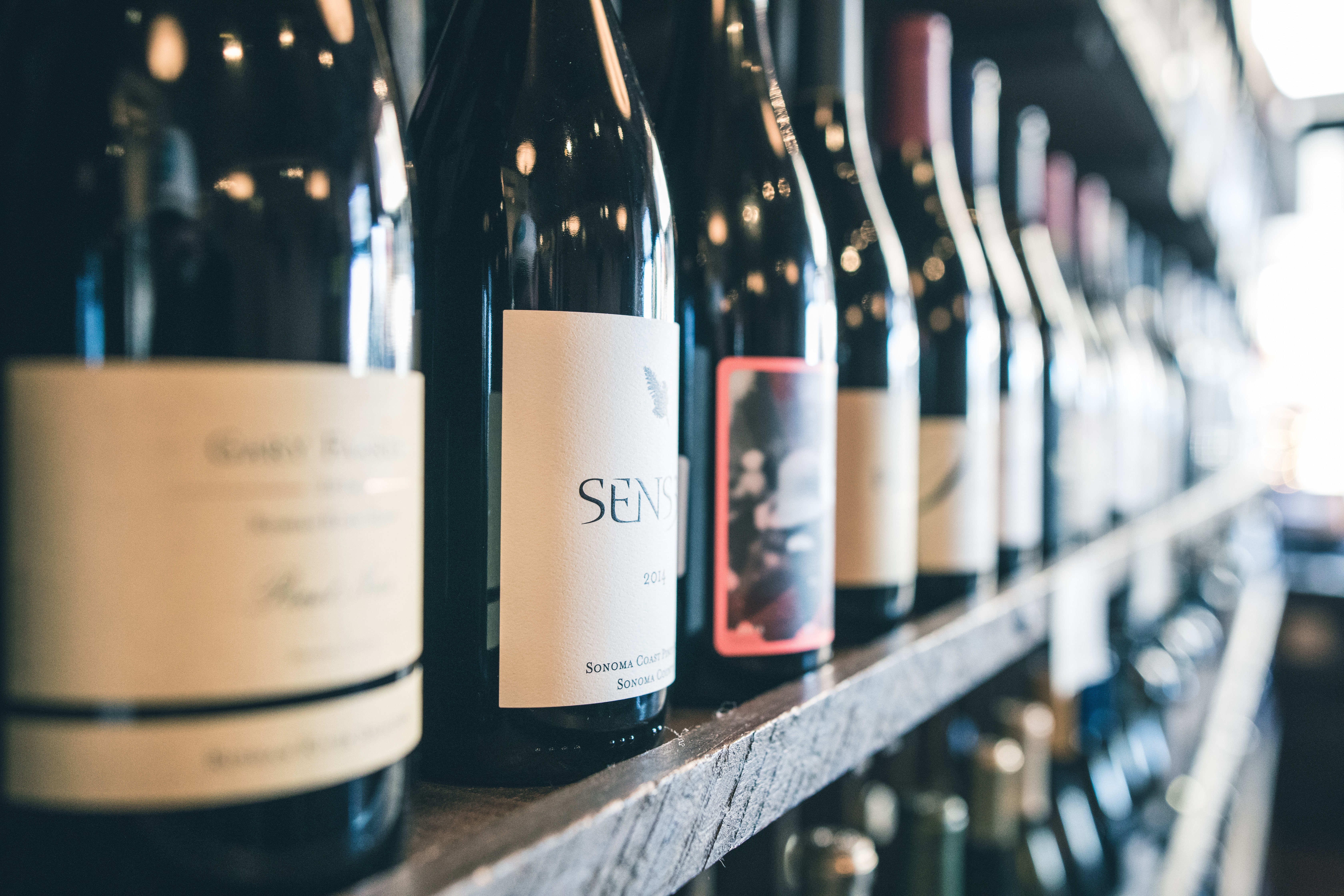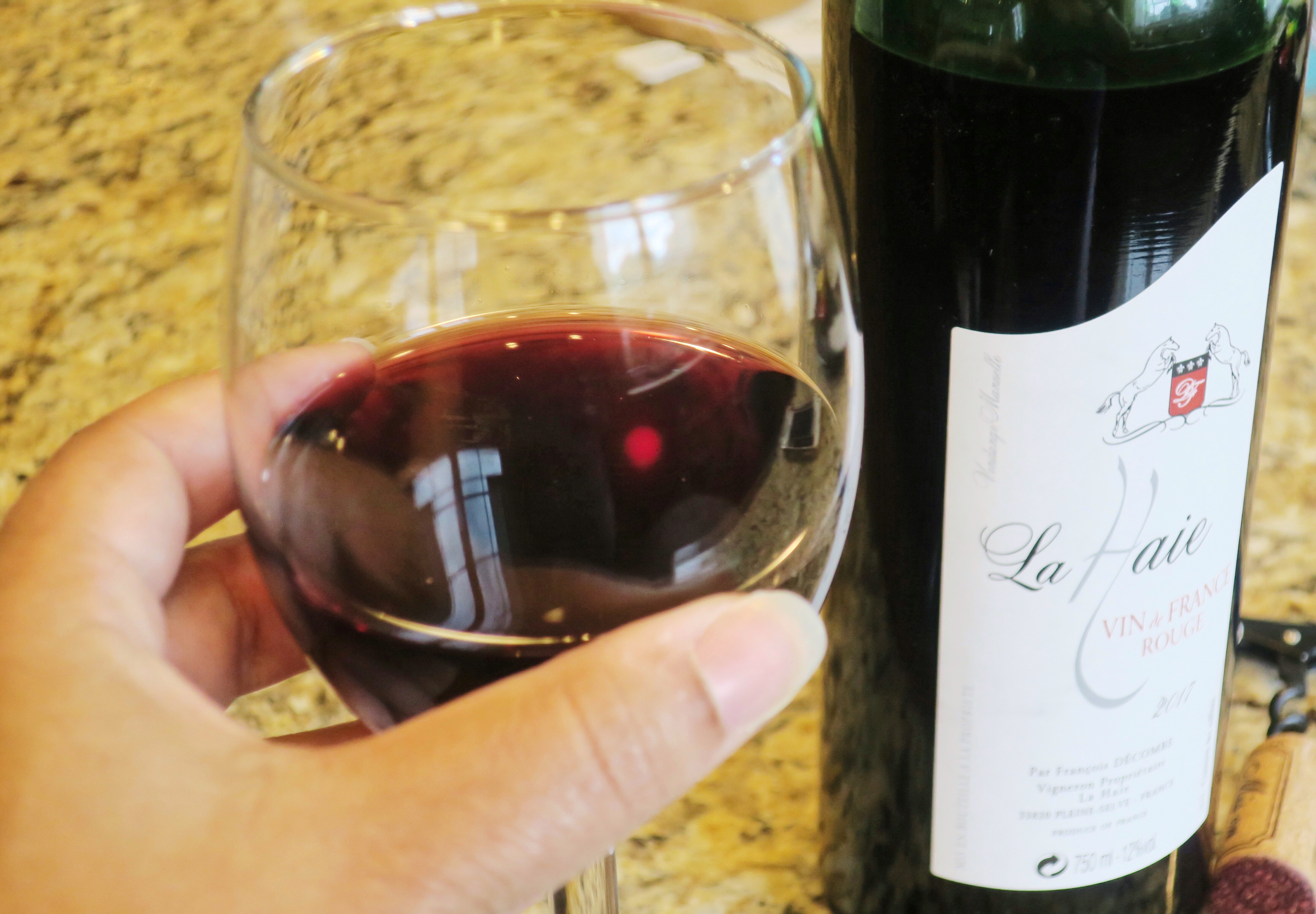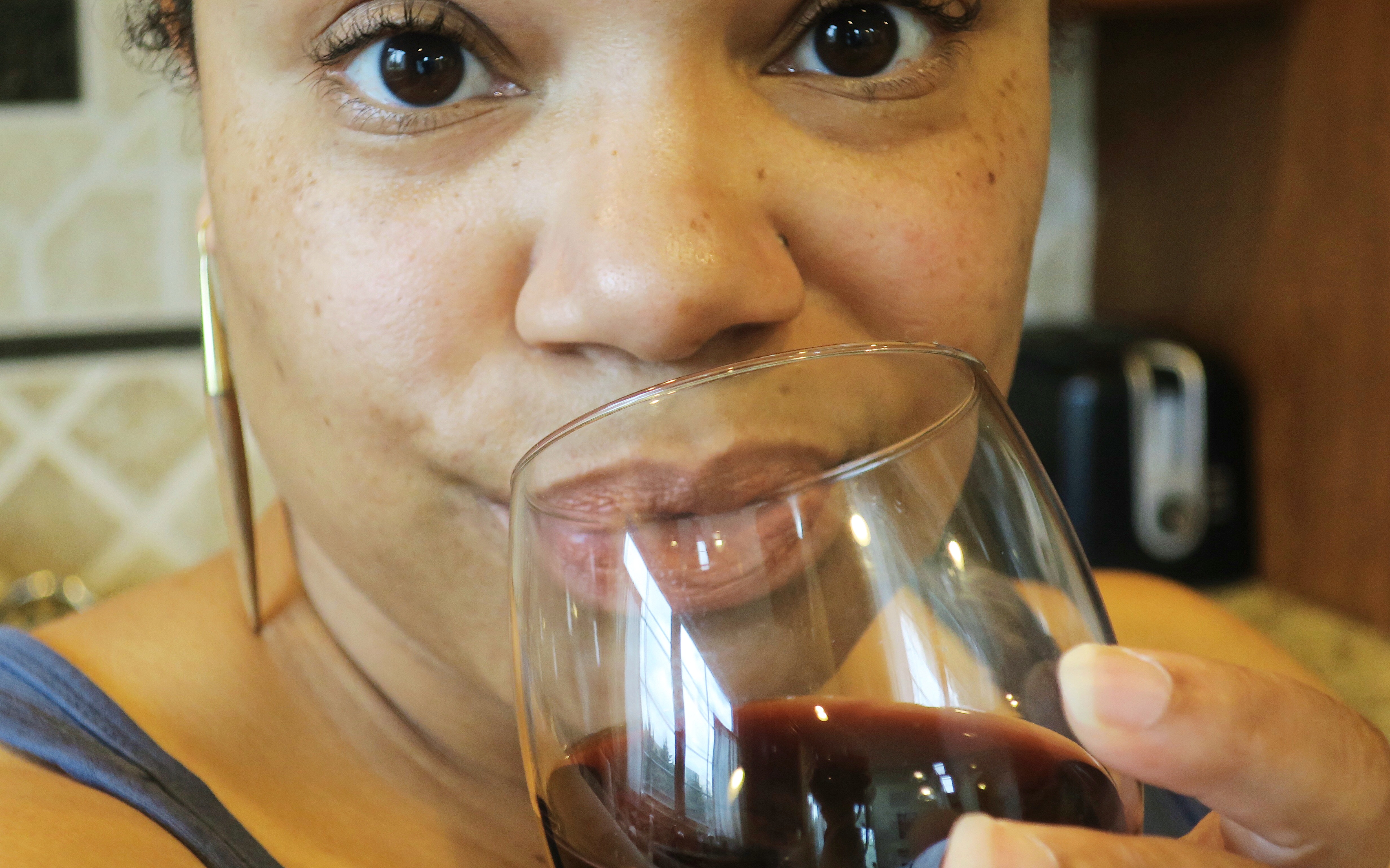
Spring has sprung which means, for my family, it’s celebration season. There were ten birthdays in my family in March & April, and then, of course, there are graduations, promotions, and all the al fresco dining. For me, that means wine… and lots of it 🤷🏽♀️. But I’m also a mom who wants to be able to function and have a good time without the dreaded red wine headache the next day. Not to mention I’m really working on slimming down and getting healthier, and I’d like to do that without having to forsake a nice glass of red. That’s where Natural Wine comes in.
But if a healthier wine that doesn’t give you a headache isn’t enough of a reason to switch, then I should probably also mention the real likelihood that your conventional wine contains more than 75 different additives such as defoaming agents, artificial color, extra sugar, HFCS, ammonia, and pesticides and herbicides.
Yuck!🤢
Why switch to Natural Wine
The craziest thing about conventional wine is that, while it may contain dozens of chemical additives and preservatives, most are not required to be listed on the bottle. Yup, in a culture where we’ve learned to read labels carefully, we are still accepting wine without knowing what’s inside. I make my own nut milk to control the ingredients and limit additives, and I make sure that my smoothies are nutritionally dense and packed with fresh organic produce, so why would I treat wine any differently. This just doesn’t add up. So I did my research and promptly said goodbye to conventional.
So if you’re not drinking conventional wine, what are you drinking? Well, natural wine, of course. For a wine to be considered “natural,” it must be farmed organically or biodynamically and include no chemical additives for aroma, color, flavor, or texture enhancement. Also, there is nearly no intervention in the winemaking and aging process. This also means only wild native yeasts are used during fermentation; so no genetically modified yeast which is typically used in conventional wine to speed up the winemaking process and to control the final flavor profile.
Simply put, this means that you’ll get a wine with nothing added, and nothing is taken away. AKA wine like your ancestors would have enjoyed. And trust me, you will enjoy it too.
One caveat, it can take some getting used to the Natural Wine flavor profiles, especially if you are used to highly sweet wines. But we all had to acquire the taste for wine at some point; so consider it an adventure!
Labels Explained

Even amongst “natural wines” there is a hierarchy. As mentioned conventional wine doesn’t really resemble wine of generations past, but once you’re looking at a shelf filled with natural wines, it can still be confusing. That’s why understanding some of the terms can be useful. As always, you’ll have to figure out what makes the most sense for your diet and your lifestyle; but knowledge is power.
Certified Organic wines carry a label which is regulated to certify that the wines do not contain synthetic fertilizers, herbicides, or pesticides.
Additionally, they have no added sulfites. A Sulfite Caveat: we know that sulfites (a term for SO2-sulfur dioxide), which are widely used in winemaking and food preservation, is entirely harmless to most people. So I’m not asserting that you should actively seek a wine that is added sulfite-free, just letting you know that some wine snobs are anti-added sulfite and that the USDA organic certification only includes wines without added sulfites. It is a myth that sulfites cause a wine headache. You should definitely be more concerned about the fertilizer, herbicides, and pesticides and always choose organic when you can.
Even Better than Organic
Biodynamic wines are not only organic but also take into account the impact of farming on the environment. I’ve talked about biodynamic farming on my Instagram stories a few times, and this certification extends into all farming practices and is something I look for whenever possible. A foundation of the biodynamic farming method is a Goethean observation of nature as it applies to farm practices. Basically, nature is interconnected (because Duh), and thus the best agricultural practices respect this interconnectedness. It sounds hokey, but it’s quite simple: this farm system is minimally dependant on imported materials, the biodiversity of the farm itself supports the system. Waste from one part of the farm fertilizes and provides energy for another. This is sustainable farming at it’s best.
Biodynamic farms are certified based on the rigorous standards of the Demeter Association, the US member of an international not-for-profit (Demeter International) on a mission to “heal the planet through agriculture.” A biodynamic wine goes through an even more rigorous process. For example, you might have biodynamic grapes but not biodynamic wine. For those grapes to go on to become biodynamic wine, they must undergo further wine processing standards which ensure an “unbroken chain of accountability from the farm to the finished product.” (quoted from Demeter’s website)
Buying Natural Wines

We enjoy wine in a variety of settings, so I wanted to give you a few tips and tricks on how to find a good wine whether you’re out and about or whether you are ordering it from the comfort of your own home. The most important thing to remember is that most natural wines are going to be far less sweet than what you’re used to, so there may be a trial and error period until you find the one you love.
Shop Locally
At your local wine store, ask the sommelier to help you find a “natural, organic, and/or biodynamic wine.” If you don’t have a local wine store, I’ve found that Whole Foods has a nice selection. Additionally, I can typically find someone in the wine department to answer questions should they arise. Also, look at the top of the aisle, my local Whole Foods has a sign that reads “Eco-Friendly;” it’s an excellent place to start.
Washington D.C. Locals – These stores have a large selection
- Domestique – 10 Florida Ave NW, 20001 – has a wine club AND wine tastings ($10) on Sunday
- Grand Cata – 1550 7th St. NW, 20001 – has a cool wine club
- DCanter – 545 8th Street SE, 20003 – has a wine concierge to help you find your new fave
Los Angeles Locals:
- DomaineLA – 6801 Melrose Ave, 90038 – has a wine club and lots of biodynamic options
- Silverlake Wine – 2395 Glendale Blvd, 90039 – organic + biodynamic wines AND spirits!
At the restaurant
First things first, if the restaurant has one, ask for the sommelier. They’ll be your best resource and will know how to find what you’re looking for. Then ask them if they have a selection of natural wines. If they don’t carry wines specifically marketed as natural, you’ll need to dig a little deeper.
Here’s what you can ask:
Hi, I’m looking for a beautiful natural wine to have with my meal tonight. Which wines are certified organic/biodynamic? Are any of those grown on sustainable vineyards?
This should turn up a few options, but if there is no sommelier and the waiter isn’t wine savvy, look for wines imported from the Loire Valley (France) or the Friuli Region (Italy); both of these regions are known for very old vineyards with limit conventional practices.
Washington D.C. Locals
- 2amys – 3716 Macomb St NW, 20016 – Pizza joint w/lots of natural wine options
- The Red Hen – 1822 1st St NW, 20001 -Italian influenced American fare w/lots of natural wine options. Try the Gnocchi Sardi w/Spicy lamb sausage and die happy.
- The Dabney – 122 Blagden Alley NW, 20001 – Farm to table vibes w/local flare. Lots of natural wines.
Los Angeles Locals
- Cosa Buona – 2100 W Sunset Blvd, 90026 – wood fired pizza + natural wine = heaven.
- Kismet LA – 4648 Hollywood Blvd, 90027 – Middle Eastern eats, Cali Vibe, Natural wine
Order Online
I mean, it’s 2019, shopping online is what most of us do. Thrive Market makes it easy to shop clean wines. Thrive not only curates a collection of clean wines, but it’s incredibly easy to filter for your personal preferences. I selected: no added sugar or sweeteners, pesticide-free, sustainably farmed, biodynamic, and organic. With all those filters two wine suggestions still came up: Marc Kreydenweiss Biodynamic Grenache Blend and Qupé Sawyer Lindquist Grenache. The limiting factor here is “biodynamic,” remove that filter, and there remain thirty-five options from which to choose. I mean, not too shabby.
Join a Wine Club – I love Dry Farm Wines
Dry Farm Wines is the only wine club in the world that exclusively features natural, organically-grown wines that are independently lab tested to meet their strict health standards. All Dry Farm Wines are fully fermented. This means natural yeast consumes all of the sugars in the juice, making them statistically (and lab-tested) sugar-free. They are also technically low alcohol, between 9.5%-12.5% alcohol, vs. up to 24% alcohol in conventional wine. This means you can enjoy a glass after dinner every night without feeling like you are overdoing it.
How does it work?
- You sign up to receive 6 or 12 bottles at the frequency of your choice.
- DFW ships you an assortment of the finest natural wines from around the world.
- Happiness Guaranteed: DFW will replace or refund any bottle you don’t love, no time limits or questions asked. Holler!
I like the every-other-month option. I can keep up with that frequency and build a small reserve of wines for when I have people over.
Also, for a limited time, The Cabernet Collection is still available (Order HERE). This is a limited 3-month membership of natural cabernets. Each month, for 3-months, you’ll receive an assortment of 3 different handpicked cabs (for a total of 9 bottles).
Do you drink Natural Wine?

If you have a natural wine that you love, share it in the comments below because sharing (wine) is caring. I’d love to know what you’re drinking. 😉
Xo, Kimberly Fe'Lix

